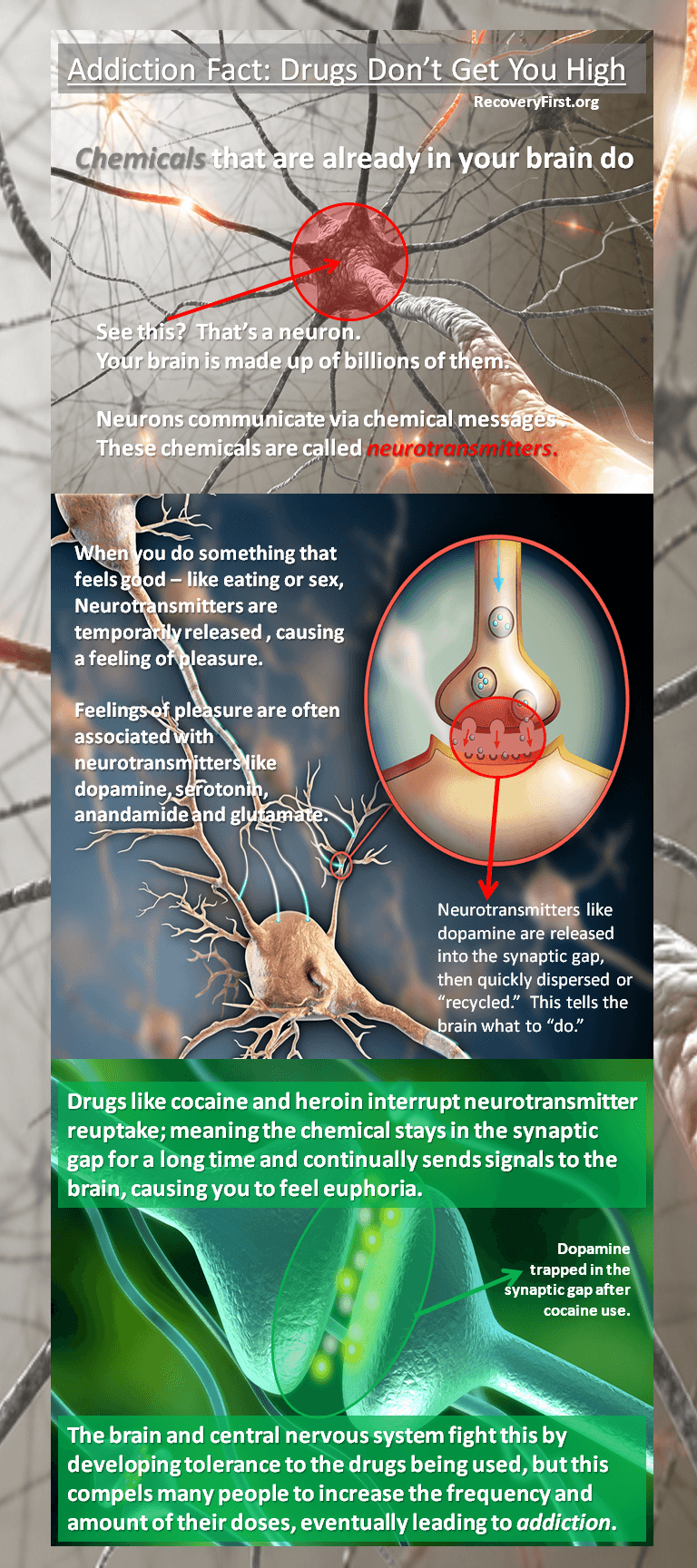Drugs Don’t Get You High, Brain Chemicals Do
 Drugs Don’t Get You High, Brain Chemicals Do. In this infographic, you’ll see that drugs don’t get people high directly. Instead, it’s the way drugs interact with chemicals that are already in your brain called neurotransmitters that cause feelings of euphoria and a general state of being “high.” But as it turns out, it’s the brain’s way of fighting off these effects that eventually causes severe neurological addictions.
Drugs Don’t Get You High, Brain Chemicals Do. In this infographic, you’ll see that drugs don’t get people high directly. Instead, it’s the way drugs interact with chemicals that are already in your brain called neurotransmitters that cause feelings of euphoria and a general state of being “high.” But as it turns out, it’s the brain’s way of fighting off these effects that eventually causes severe neurological addictions.
In order to prevent the interference with neurotransmitters, the brain and central nervous system develop tolerance to certain substances. However, this often drives people to take more of the drug more frequently to achieve the desired effects. Over time, this leads to addiction, and it can happen with a surprising number of substances. In fact, anything that causes interference with key neurotransmitters like dopamine, serotonin, endorphins, glutamate and others can cause addiction. Check out the infographic to learn more, or skip below for the bio and references:

References:
http://www.drugabuse.gov/publications/science-addiction/drugs-brain
http://www.drugabuse.gov/publications/drugfacts/cocaine
Related articles
- Is Drug Addiction A Disease Or Not?
- How Long-Term Use of Painkillers Affects the Brain
- Dopamine and games: Liking, learning, wanting to play
- McGill Researchers Discover That Sodium Acts As ‘On/Off’ Switch For A Major Neurotransmitter Receptor In Brain
- How to Find Free Drug Addiction Treatment
- The Big List of Addiction & Recovery Movies
American Addiction Centers (AAC) is committed to delivering original, truthful, accurate, unbiased, and medically current information. We strive to create content that is clear, concise, and easy to understand.
While we are unable to respond to your feedback directly, we'll use this information to improve our online help.